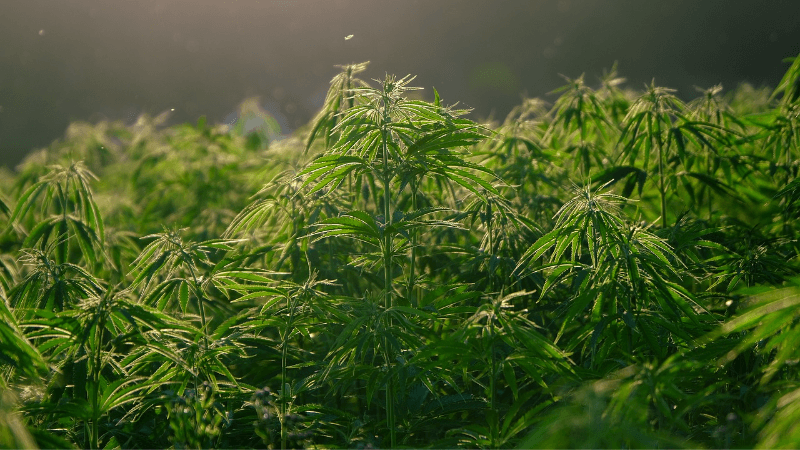
Hop Latent Viroid spreads to Vermont
A highly contagious Cannabis ssp. pathogen, Hop Latent Viroid (also referred to as HLV, HpLV, HpLVd, HLVd, or “dudding” disease) has been detected at a licensed tier 1 cultivation site in Vermont.
Hop Latent Viroid has already been detected in cannabis in California, Colorado, Nevada, Oregon and Washington.
Physical symptoms of HLVd can be hard to detect but may include stunted plant growth and under-developed trichomes. Often, the disease is not diagnosed until harvest and potency testing – HLVd-positive cannabis may contain roughly half the THC of healthy plants.
Limited published research exists, but HLVd does not appear to be airborne, and does not have any known impacts to human health. The disease spreads readily through plant material. Plants may be infected through cultivation tools, insects, physical contact with an infected plant, and hydroponic systems. Clones taken from infected mother plants will also likely be infected with HLVd.
Vermont’s licensed cannabis testing labs offer HLVd testing, and home test kits are available to purchase through various retailers online. In the meantime, prevention is the best means of protection against Hop Latent Viroid.
Cultivators are instructed to take the following steps:
- Adopt strict bio-security measuresA highly contagious cannabis pathogen, Hop Latent Viroid (also referred to as HLV, HpLV, HpLVd, HLVd, or “dudding” disease) has been detected at a licensed tier 1 cultivation site in Vermont.Physical symptoms of HLVd can be hard to detect but may include stunted plant growth and under-developed trichomes. Often, the disease is not diagnosed until harvest and potency testing – HLVd-positive cannabis may contain roughly half the THC of healthy plants.Limited published research exists, but HLVd does not appear to be airborne, and does not have any known impacts to human health. The disease spreads readily through plant material. Plants may be infected through cultivation tools, insects, physical contact with an infected plant, and hydroponic systems. Clones taken from infected mother plants will also likely be infected with HLVd.Vermont’s licensed cannabis testing labs offer HLVd testing, and home test kits are available to purchase through various retailers online. In the meantime, prevention is the best means of protection against Hop Latent Viroid.
Cultivators are instructed to take the following steps:
- Adopt strict bio-security measures now.
- Clean and sanitize all tools between plants.
- Ensure employees are frequently washing their hands. If they are wearing gloves, make sure gloves are changed after each plant.
- Scrub and sanitize shoes prior to entry, and/or wear protective disposable booties over shoes.
- Have employees change their clothing before entering the grow space and wear additional protective apparel, especially if they have plants at home or have been to another cultivation site.
- Know your source.
- Always source your seeds and clones from companies with a known bio-security track record and/or can provide negative HLVd test results.
- Limit visitors.
- Human interaction is a major source of infection.
- Mobile trim teams (teams that travel between grow sites to assist cultivators in plant maintenance, harvesting, and processing) can be a point of infection. Mobile trimmers should utilize strict bio-security protocols. A cultivator utilizing a mobile trim team should ensure that any mobile trimmers working on their crop are, at a minimum, following the bio-security measures outlined above.
- Quarantine and test all new plant material.
- Any new genetics brought into a grow facility should be quarantined for a minimumof two weeks, and then tested for HLVd.
- Mother plants should be continuously tested on a four-to-six week cycle.
- Immediately notify your compliance agent and dispose of infected material.
- Infected plants should be immediately destroyed. Do not attempt to grow through the cycle – this may result in infection / loss of your entire crop.
- Adopt strict bio-security measures now.
Cultivators with questions or concerns should reach out to the Compliance Team at CCB.Compliance@vermont.gov.



